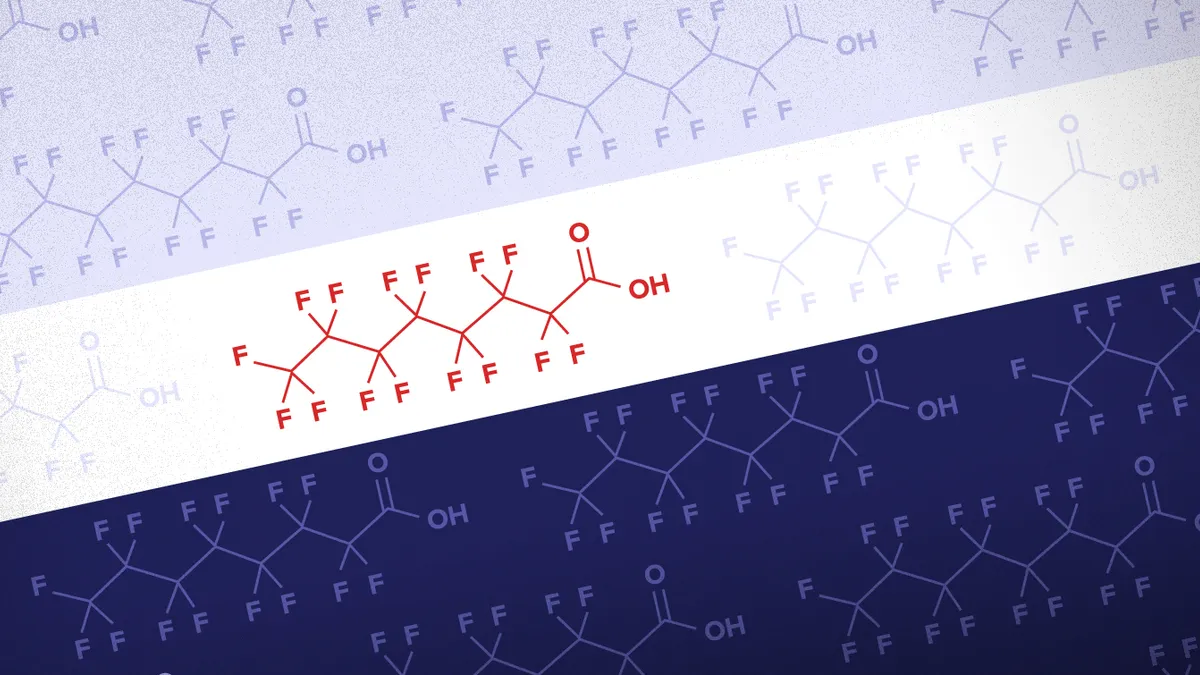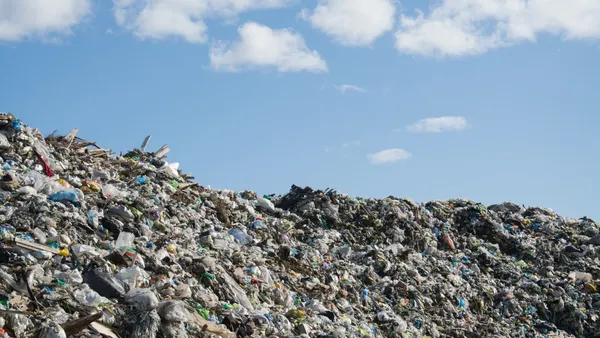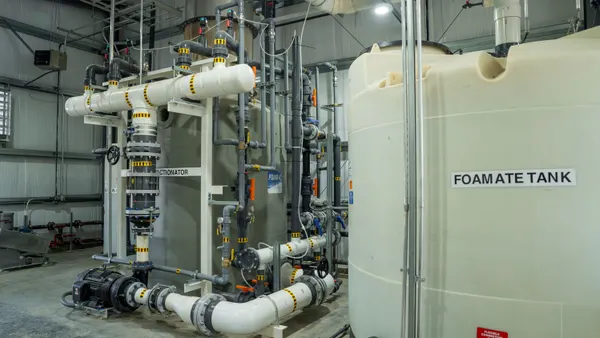Allonnia, a biotech company that offers PFAS remediation technology as well as “plastic upcycling” initiatives, has raised $30 million in series A funding for new research and development efforts.
The investment round was led by Bison Ventures, along with Irongrey, BHP Ventures, Vale Ventures, Wholestack LP and PPNG, according to a news release. Its existing investors, Battelle, General Atlantic and Viking Global Investors, also contributed. Allonnia’s total funding since launching in 2020 is $90 million.
Some of the new funds will be used to accelerate its ongoing projects, including PFAS remediation offerings, the release said. Allonnia offers one PFAS remediation product commercially, a foam fractionation technology that it says can remove about 99% of PFAS from contaminated water.
The remediation technique has applications at landfills, wastewater treatment plants, airports and military bases. It binds PFAS molecules to air bubbles, allowing them to separate and rise to the surface of water, where the molecules can be skimmed off as a foam.
Allonnia is working on improvements to the technology to better remove both long- and short-chain PFAS compounds to meet the U.S. EPA’s proposed maximum contaminant levels “in the majority of waters treated,” it said.
Allonnia is also researching a PFAS-detecting biosensor and is in the process of getting the first version of the product ready, according to a spokesperson. The sensor will have applications for water monitoring, site investigations and risk mitigation.
Tom Biegala, founding partner of Bison Ventures, said he is optimistic about how quickly Allonnia has ramped up biotech and engineering projects. “Global waste is a massive liability to human and ecological health, and many of today’s solutions are cost inhibitive or ineffective at scale,” he said in a statement.
Allonnia sees PFAS remediation as an “enormous global problem” and anticipates higher demand for such services in coming years, estimating a $160 billion market in the United States. Waste facilities are already managing PFAS in leachate and in other operations. The industry anticipates additional costs and possible liability issues from handling PFAS-containing materials in the coming years, especially as state and federal rules are expected to change.
The EPA is considering PFAS standards for drinking water, with a final rule possibly coming by the end of the year, and is undertaking other PFAS-related studies outlined in the agency’s long-term PFAS Roadmap plan.
The EPA also plans to designate two PFAS compounds, PFOS and PFOA, as hazardous substances under the Comprehensive Environmental Response, Compensation and Liability Act, also known as Superfund.
Allonnia will also use some of the new funding for advancing projects in its other verticals, including several projects the company described as “waste degradation solutions.” Allonnia is working on engineering microorganisms to help biodegrade or recycle polyurethane from discarded mattresses, according to its website.
Other “priority verticals” include carbon sequestration, mining sustainability and other contaminant remediation.











